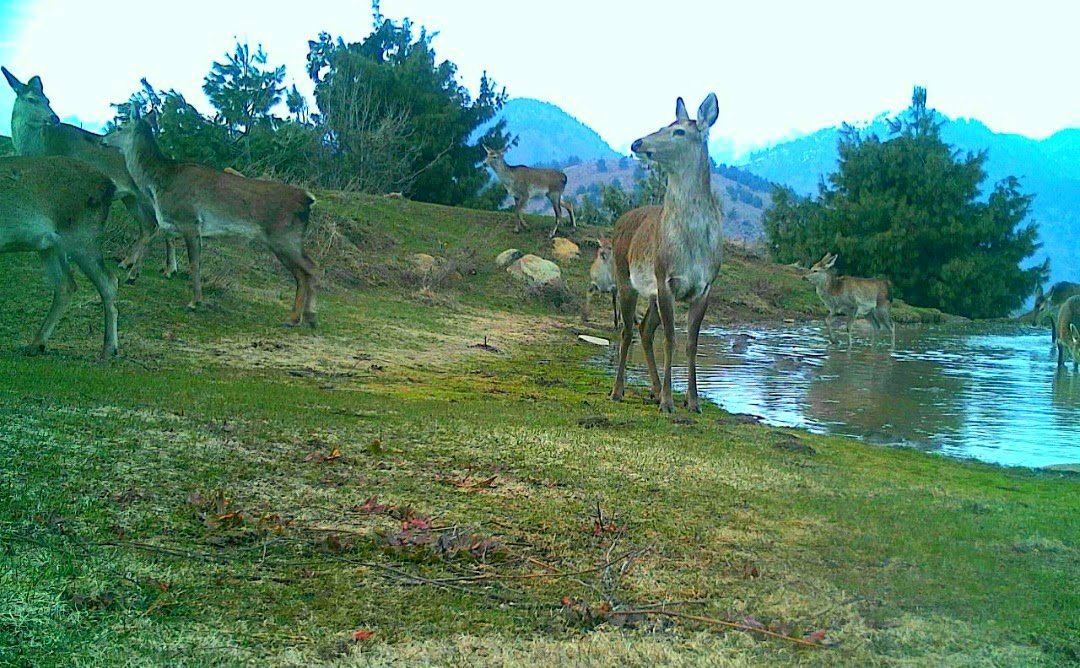Jahangeer Ganaie
Pulwama, Aug 27: The authorities in Shikargah area of Tral in south Kashmir’s Pulwama district have failed to make Hangul breeding centre functional even as the wildlife department has claimed the presence of Hanguls in Shikargah wildlife Sanctuary.
An official of the wildlife department told the news agency—Kashmir News Observer (KNO) that after several locals said that they have seen a group of Hanguls in the area, the department installed cameras there and after sometime around 10 Hanguls were spotted.
He said that pictures of around 10 Hanguls were clicked by sensor based cameras installed on top locations of Shikargah.
However, locals said that the authorities should not taken their presence for granted as Hangul population is vulnerable and authorities must bring them to breeding centre so that the purpose of the breeding centre will be also fulfilled.
“In year 2011, a Hangul breeding centre was established in Shikargah wildlife sanctuary on which crores of rupees were spent, however, after it’s completion a Hangul was placed in it but according to officials hangul became victim of leopard.”
As per locals since 2012 they never saw leopard in the area, however, from the last six months, dozens of people in the area have said that they have been witnessing movement of Hangul population.
They said that hangul population has damaged their apple orchards and vegetable fields and their presence in populated area is making them more vulnerable.
“This area is very beautiful and presence of Hangul at the breeding centre can attract tourists to the area,” said Irshad Ahmad, a resident of Pinglish, adding that what is fun of spending crores of rupees on breeding centre when there is no hangul.
When contacted wildlife warden for Pulwama and Shopian, Suhail Ahmed said that the work on the breeding centre was defunct for many years and they will be repairing it wherever need arises.
“Centre will become functional in next two or three months again,” he said, adding that hangul is a sensitive species and their direct capturing may be intolerable to them.
“We are trying to habituate them naturally without letting them know that they have been kept in breeding centre,” he said.
Pertinently, poached for its meat, antlers and skin, the Hangul numbers have been on the decline for the past many decades.
From around 3,000, the figure dropped to 900 in 1989 which dwindled to near about 200 a few years back.
Conservation of Hangul assumes great significance as the species is placed under Schedule-I in the Jammu and Kashmir Wildlife (Protection) Act, 1978 (amended up to 2002) and the Indian Wildlife (Protection) Act 1972.
It is also listed in Appendix-I of the convention on International Trade in Endangered Species of Wild Flora and Fauna—(KNO)




